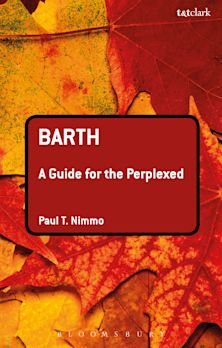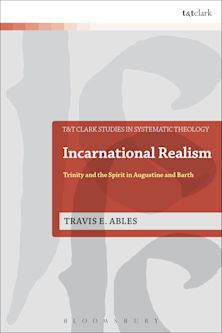- Home
- ACADEMIC
- Theology
- Karl Barth
- Christ, Power and Mammon
Christ, Power and Mammon
Karl Barth and John Howard Yoder in Dialogue
Christ, Power and Mammon
Karl Barth and John Howard Yoder in Dialogue
You must sign in to add this item to your wishlist. Please sign in or create an account
Description
This book examines the role of the New Testament concept of the 'principalities and powers' in the thought of Karl Barth and John Howard Yoder, showing how this biblical concept of power is central to the fundamental theological convictions of each thinker.
Prather offers a scholarly account of the underexplored theological and ethical import of a major biblical theme and the book addresses questions and concerns from a wide range of academic and lay theological interest. He brings Barth and Yoder into dialogue here and examines the three crucial areas: the 'confessional' distinction of church and world; the demonization of political power; and the intrinsic relation between the political and economic powers.
While other theologians have rightly identified a 'christocentric' connection between the thought of Barth and Yoder, no attempt has been made to bring them together through the sustained analysis of a single doctrinal or ethical issue - this book does just that.
Table of Contents
Product details
| Published | 12 Sep 2013 |
|---|---|
| Format | Ebook (PDF) |
| Edition | 1st |
| Extent | 272 |
| ISBN | 9780567110435 |
| Imprint | T&T Clark |
| Publisher | Bloomsbury Publishing |
About the contributors
Reviews
-
Scott Thomas Prather has written a helpful contribution to the study of the theology of the powers ('exousiology') in Karl Barth and John Howard Yoder, and its relation to political and economic power ... readers interested in Yoder's thought will not be disappointed with this offering.
David Haddorff, St. John's University, New York, Studies in Christian Ethics 28.2
-
I believe they will find [Christ, Power and Mammon] to be valuable resources.
David C. Cramer, The Conrad Grebel Review
-
Prather's book is much more than a call to arms for Barthians. It is a thoroughly theological 'exousiology' … Kraus has succeeded in laying out a new vision of Jesus as a nonviolent peace and justice activist wholly reliant on God's transformational power … I hope those who disagree will read the book and entire into the discussion.
Gloria Rhodes, The Mennonite Quarterly Review

ONLINE RESOURCES
Bloomsbury Collections
This book is available on Bloomsbury Collections where your library has access.


































